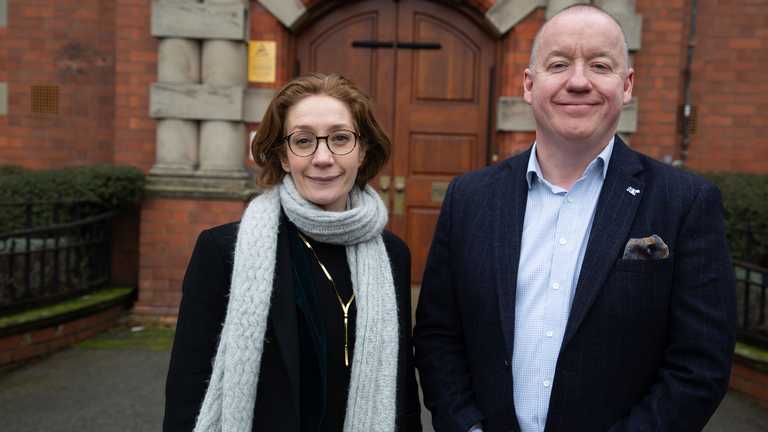

Loading search...
Loading search...
Loading site search...
Loading site search...
Loading site search...
Loading...
Loading site search...
Loading site search...
Posted 9 May 2022

An examination of the impact upon farmers of changes in agricultural and environmental policy drawn up by a team of Harper Adams University researchers has picked up wide interest in industry and Government.
The team, from the University’s Food, Land and Agribusiness Management Department, worked alongside the Agriculture and Horticulture Development Board (AHDB) to examine the farmers’ responses to the opportunities presented by the new Sustainable Farming Incentive (SFI) for a joint report – which can be read here.
The Government’s new approach to agricultural policy will see direct payments under the Basic Payments Scheme (BPS), which had been the manner in which funds from the Common Agricultural Policy were generated while the UK was in the European Union, phased out over the next six years.
As these payments are phased out, new, environmentally-focussed schemes are to be brought in their place by the Department for Environment, Food and Rural Affairs (DEFRA) with the new SFI, and the wider Environmental Land Management Scheme (ELMs) which it is a key part of, forming a major part of the new agricultural policy.
Nigel Hill, Associate Head of Department, Food, Land and Agribusiness, said: “As well as our work with AHDB on the publication, we also participated in two presentations to the DEFRA SFI Team.
“Their level of interest in the results at the first presentation meant they asked for a follow-up meeting, and some of our findings were reflected in the recently announced Defra SFI schemes updates.
“The work has also been presented at the Agricultural Economics Society annual conference as a discussion paper and at one internal seminar presentation.”
For their report, the teams from Harper Adams and AHDB spoke to a representative sample of farmers from across a variety of farms including beef, dairy, sheep arable and pork from across England, aiming to find out their awareness of – and views on - the SFI and the wider ELMS, and what is affecting their decisions on actions – if any – to take.
They note:
“…the key factors perceived by farmers which will affect their decision making included:
The study also found that those who take part in existing schemes or who have good awareness of ELM were more likely to take part in the SFI pilot (unless they had already diversified their farms, which were often the case among a number of large-scale enterprises).
Conversely, those who do not have a good understanding of agricultural policy are less likely to take action – with up to a third of farmers unaware of coming changes at all.
The research was conducted by Dr Iona Huang, Professor Karl Behrendt, Nigel Hill and Eleanor Parker, a Harper Adams MSc student.
The researchers note: “To achieve transformational changes for future farming in the UK, it is essential that the new policy will align farmers’ economic sustainability with the expectations about environmental and social sustainability.
“Sustainable farming and food system in the UK should be seen as a shared responsibility in the society and the farmers should be rewarded for the eco-environmental services they provide not just on an income foregone approach, but on the basis of full recognition of the natural and social capital created through sustainable farming.”
The teams have now made a series of recommendations – both for farmers on increasing their participation in the scheme, and to Government on how it could be improved.










We use cookies to ensure that we give you the best experience on our website. If you continue without changing your settings, we'll assume that you are happy to receive all cookies on the website. However, you can change your cookie settings at any time.